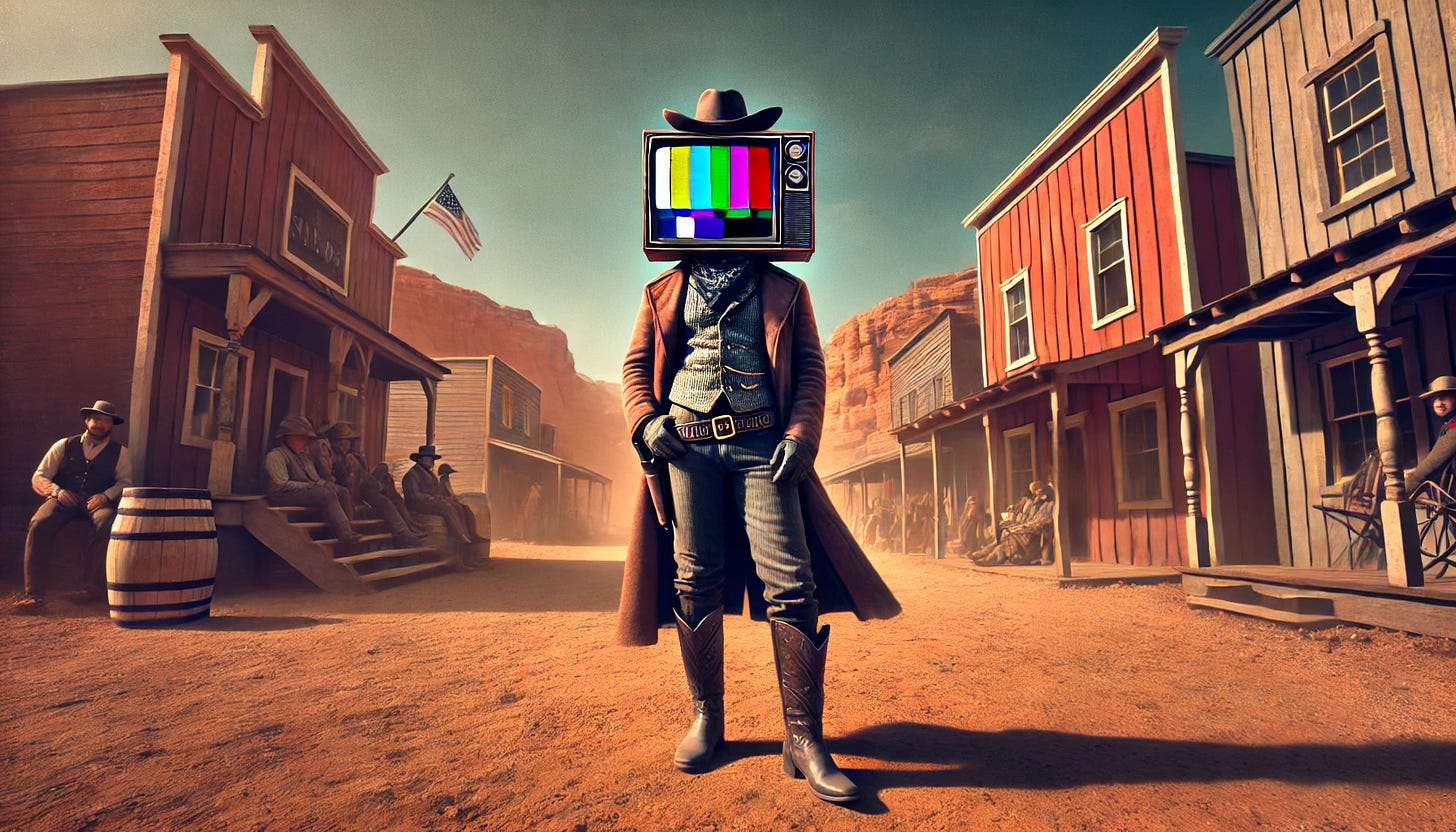Is It Time the TV Industry Turned into the Wild West?
The other day, I was on the phone to an agent. They were asking about the progress of a project we’d pitched to a channel - one that involved their client. We still hadn’t heard back from the broadcaster. Weeks had gone by. Then months. And now, their client was starting to get booked up on other things.
More worrying, the agent was concerned that the zeitgeist for the idea - the window where it felt timely and urgent - was slipping away.
Then came the inevitable question: “Do you think we should take it to another channel while we wait?”
Not that long ago, I would have said “no.”
It was considered bad form - poor etiquette, almost akin to cheating on a partner even. If everyone did that, it would be chaos, with no-one knowing where they stood, it would be like the Wild West.
You pitched to one commissioner. You waited. You respected the process and the relationship. And there was an unspoken rule that if you played fair, you’d get your hearing. Maybe even a commission.
But I’m not sure that rule makes sense anymore.
Because the reality on the ground has changed. Dramatically. And I’m not convinced commissioners fully appreciate just how much.
Today, decisions take months. In some cases, quarters. I’ve got an idea sitting with a broadcaster right now, one they supposedly love, that’s been with them for over a year. And because I formatted it specifically for them, I can’t really take it anywhere else. I won’t be making that mistake again in a hurry.
The Risk Has Shifted—And Indies Are Carrying It
Broadcasters often talk about “risk” when they’re weighing whether to greenlight a show. But what they don’t seem to realise is that while they’re analysing the risk, it’s the production company that’s actually carrying it.
Small indies are burning through their own cashflow to develop ideas, keep staff in place, and hold onto teams while waiting for decisions that take too long. You can’t cashflow a maybe. And you can’t pay your staff in promises.
One stuck idea can represent half of an indie’s potential revenue for the year. And while commissioners debate whether they can raise funds, companies are literally going under.
The disconnect is staggering. Of course, commissioners are under pressure too - smaller teams, fewer slots, tighter budgets - but the level of prevarication by their bosses doesn’t reflect the urgency on the outside.
Channels need to accept a new reality. If you can’t get a project across the line quickly at your end, then I’m afraid the only other option is for us producers to take it to multiple outlets at once. In any case, that’s exactly what happens with the biggest hot properties repped by agents in the US - take a bite or lose it.
How Do We Fix It? Optioning Ideas Could Be the Answer
But perhaps there is a less nuclear option. One that doesn't descend the industry into a chaotic gunfight at the TV Coral.
If broadcasters can’t move faster, then they need to help the smaller companies. So here's another idea that I've nabbed from the movie industry - why don't channels start optioning ideas.
Not a full-blown development deal. Just a simple holding marker. A basic agreement that says: “We like this enough to hold it for six months, and we’ll pay you a small option fee while we figure it out.”
As I said, this isn’t a radical idea. Scripted teams do it all the time. But unscripted? Not so much. And yet, it could make all the difference.
For broadcasters, it buys time. For indies, it keeps ideas alive—and the business afloat.
Because without some kind of mechanism to hold ideas formally, we end up with a system where slow decisions kill projects, or worse, entire companies.
It’s Time to Pitch Differently
A few years ago, you might have said no to pitching an idea to multiple broadcasters at once. Today? I think the answer has to be yes.
Pitch smart, pitch widely. Be transparent about it. But don’t tie yourself to one broadcaster if it means potentially sinking your company while you wait.
This isn’t about being ruthless. It’s about survival.
I’ve always believed in respecting the process. But if the process no longer respects the people feeding it, something has to change.
Broadcasters need to move faster. And if they can’t, they need to be honest about that from the start. “Maybe” isn’t helpful when it comes six months too late.
What’s Your Approach?
Are you still waiting for broadcasters to make up their minds? Or have you decided enough is enough?




I think it's perfectly alright to start pitching ideas to several broadcasters simultaneously.